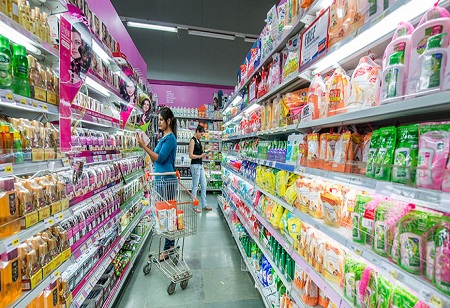
The people of the current generation cannot even imagine passing a day without having fast-moving consumer goods (FMCG). While in ancient times as we all know the mankind was not financially sound and based on the availability of the foods they satisfy their hunger.
Time has changed over the years, and FMCG products have become part and parcel of people's daily lives. Ever since the transportation sector has turned out to be more efficient, the flow of products has become easier to reach the hands of retailers and eventually the end users, who are the consumers.
On the other hand, the Asia-Pacific market for the FMCG sector is an enormous one, comprising of home care, food, beverages, personal care, and more. People spend a lot, especially on food and beverages, and it is the highest spending region in the Asia-Pacific region and the largest division of the FMCG sector. Since the market has huge potential, consumers always welcome players who can add value to their demands in terms of delivering quality perishable goods to them. What I believe is the FMCG industry is a part of our survival and plays an essential role in our daily lives.
During the pandemic the beverage sector had a slow down but it has recovered now and undergoing steadily. Currently, several segments of FMCG are expanding and anticipating great growth in the future.
Areas to consider for seamless movement

Time is money! The more products the firms can deliver on time the more they can earn as the utilizations are big enough and this is the place where technology comes into light. Multiple technologies exist in the market, but picking the right one based on the demands will pay off.
The organizations shouldn’t compromise on the efficiency part whether it may be manufacturing of products, packaging, supply chain and all other activities which acts as a part of the FMCG. First of all the productions tasks have to be automated as it aids to reduce time and decrease the need for labor wherever necessary and the cost cutting can be done with ease.
Effective stock control to evaluate future demands

Inventory management should be the other area of focus, as it gives an indication of how to forecast future demands. Accordingly, the process can be initiated smoothly and be able to meet the demands of the users. Ideally, there are contexts wherein companies may lack in this function due to various reasons such as poor technology, inefficient workforce and many others. The installation of appropriate software will mitigate the risk of inventories, and the firms can go further.
The next is logistics and transportation. Getting the products delivered on time matters for consumers. However, in the case of the FMCG sector, let’s take an example of supermarket. Early in the morning, we could see one or more vehicles parked nearby, delivering products and filling the space. Consequently, the people don’t have any hassle buying things, and they are satisfied with the service.
Stay updated with the customer base

You would have come across in your daily life that receiving information by texts messages, ads or by any forms of communication about the products its price and offers so that being a consumer can take the decision of purchasing via the online platform or stepping out to the supermarkets, shops or anywhere for purchase. This is one of the most effective ways to grab the user’s attention.
The firms also do provide the after sales service and this is handled by team of experts who take the feedback of the users to see what best the company do from their end to serve their customer better. Organizations use various ways to get in touch. However, in the 21st century, it’s all about smart handling and closing the ticket.
The impact of AI in FMCG

Artificial intelligence and chat bots are the tactical ways to get into the world of customers in this digital era. It helps to understand the customer much better than any other medium of communication. Queries are solved soon within less time and will leads to customer satisfaction. With regards to call centre support, it’s hard to deal with the frustrated caller, and the person may end the call without even listening to the executive's words.
Out of ten callers, five or six may be able to be convinced by executives, and the remaining ones might disconnect the conversion, and these customers cannot be retained either.
Apart from artificial intelligence, the e-commerce and digital marketing industries have paved the way for a huge customer base in the FMCG sector. These days, companies invest a lot in the online space to scale up their businesses. Even ecommerce platform is an efficient medium to sell the goods and track the users in a way that the remarketing can be done.
To sum up, there is no doubt that the FMCG sector is booming and will be able to achieve higher market share than in previous years. FMCG was a part of our daily life, now and unquestionably in the future.
We use cookies to ensure you get the best experience on our website. Read more...